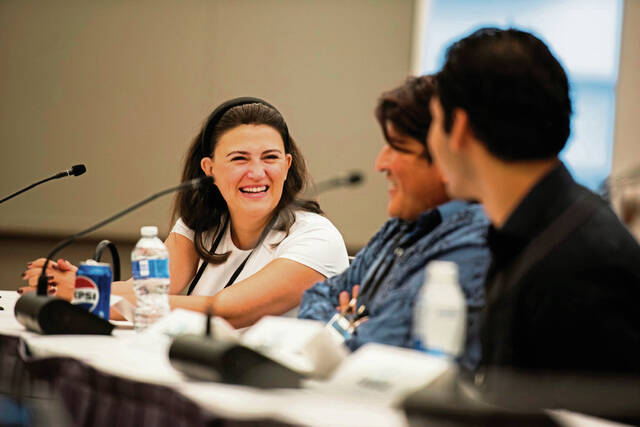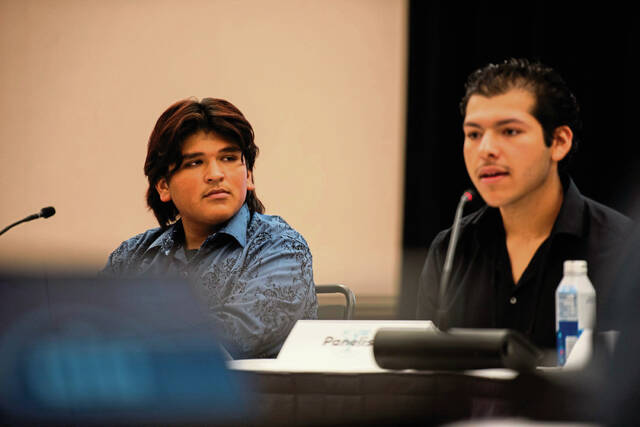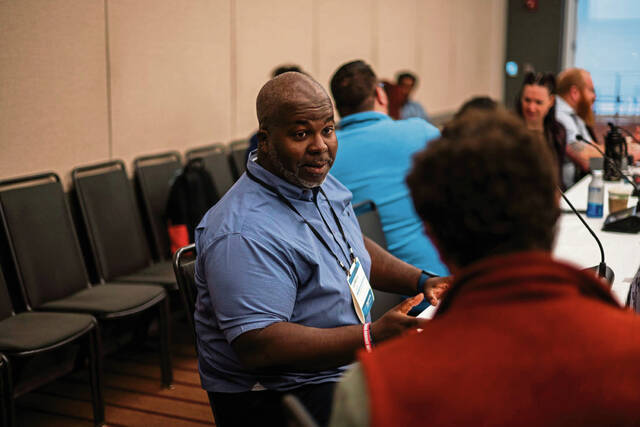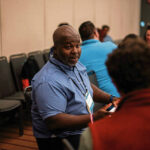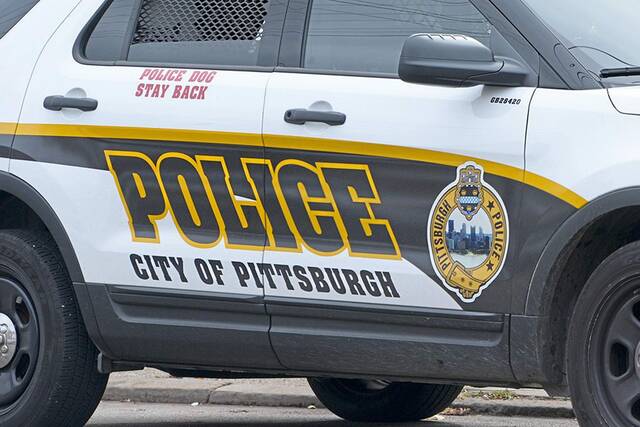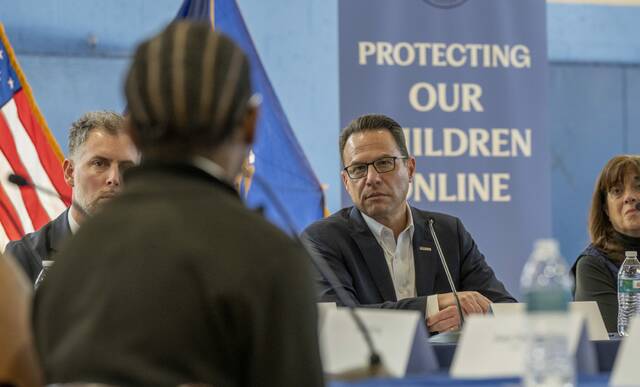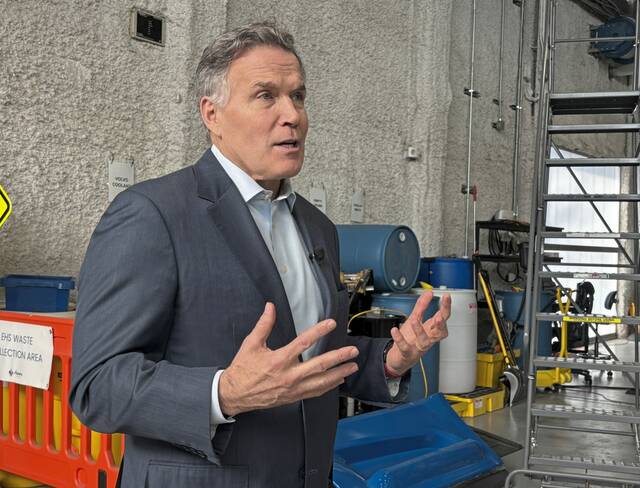Steve Silva told the story of a former classmate who regressed into anger and hate after bullying and exclusion centered on his hand-me-down clothes.
“He looked at us and told us that he was going to bomb the school,” 16-year-old Silva said during the final day of the 2025 Eradicate Hate Global Summit. “That’s when I started seeing him go down this violent road.”
On Wednesday, Silva and Salvador Gonzalez of Sam Rayburn High School in Pasadena, Texas, spoke on a panel about preventing violence and hate. Despite their age, they drew a crowd of teachers and community members eager to hear their experiences and ideas.
At the roundtable, held in the David L. Lawrence Convention Center, Silva and Gonzalez spoke about the Safe School Ambassador program, which is designed to help teens speak up against bullying and mistreatment following the Columbine High School killings in 1999, and the UP End Hate campaign, which provides parents and adults with tools to navigate hate online.
In 2021-22, about 19% of students ages 12 to 18 reported being bullied during school. Among students who were bullied, 22% reported that the bullying happened online or by text, according to the National Center for Education Statistics’ 2024 Student Bullying report.
“What Safe School Ambassadors does is it trains a group of socially influential students like Steven (and) Salvador who come from a cross section of different cliques,” said Kimberly Moffet, director of programming and training. “We teach how to effectively get help for a problem that’s too big for you to handle on your own, or should not be your responsibility to handle on your own.”
Since 2000, the program has been implemented in more than 2,100 schools and trained over 170,000 youth and 30,000 adults across 42 states, according to a program overview report.
Silva said he tried to include his former friend in social gatherings but couldn’t prevent him from growing isolated and lashing out violently. He added that he, too, had been a victim of bullying.
“As I grew older, kids started learning about hate speech, and that’s when it started turning into hate-fueled violence, and I have been a victim of that in high school, and I think that’s really why I joined (Safe School Ambassadors) this year,” Silva said. “I think that it’s really not fair because obviously I shouldn’t have to go to school worrying about if I’m gonna be looked at weird because of who I love.”
When Salvador, 17, got into high school, he said, he was very shy.
“I didn’t really know anything or anyone, so I was just trying to get involved, be more social and break out of my shell,” he said about his involvement.
The pair answered questions from educators who wanted to know the best ways to support children. Silva and Salvador’s main suggestions: empower young people, educate yourself on social media language and culture, ask students what they need and create connections.
Sam Rayburn High Schoolers Steve Silva and Salvador Gonzalez speak about hate and violence in grade schools during a panel discussion @EradicateHate_.
— Megan Trotter (@meganktrotter) September 17, 2025
“YOLO — you only live once,” Silva said about the source of his confidence. @TribLIVE pic.twitter.com/H0RqnBjukM
Eradicate Hate hosted a summit specifically for students on Monday. Over 30 schools were represented.
LIGHT Education Initiative coordinator Doug Khorey said the summit was a place where students could hear their ideas matter.
“The student groups are talking about plans within their own group and with other schools, and they’re brainstorming, and they’re working with what can we do in our own school community to make it a better community this year,” he said to TribLive on Monday. “It’s really … quite inspiring.”
Lamont Lyons, director of student and community engagement in the North Hills School District, said he plans to implement parts of the Safe Schools Ambassador Program.
“I’m gonna look and see how if there’s elements of that that can be implemented within our school district and our school community,” Lyons said. “I think that’s so important … (to) empower our students in North Hills that they can make change.
“They can be difference makers. They don’t need to be sitting back and waiting. They have ideas.”


